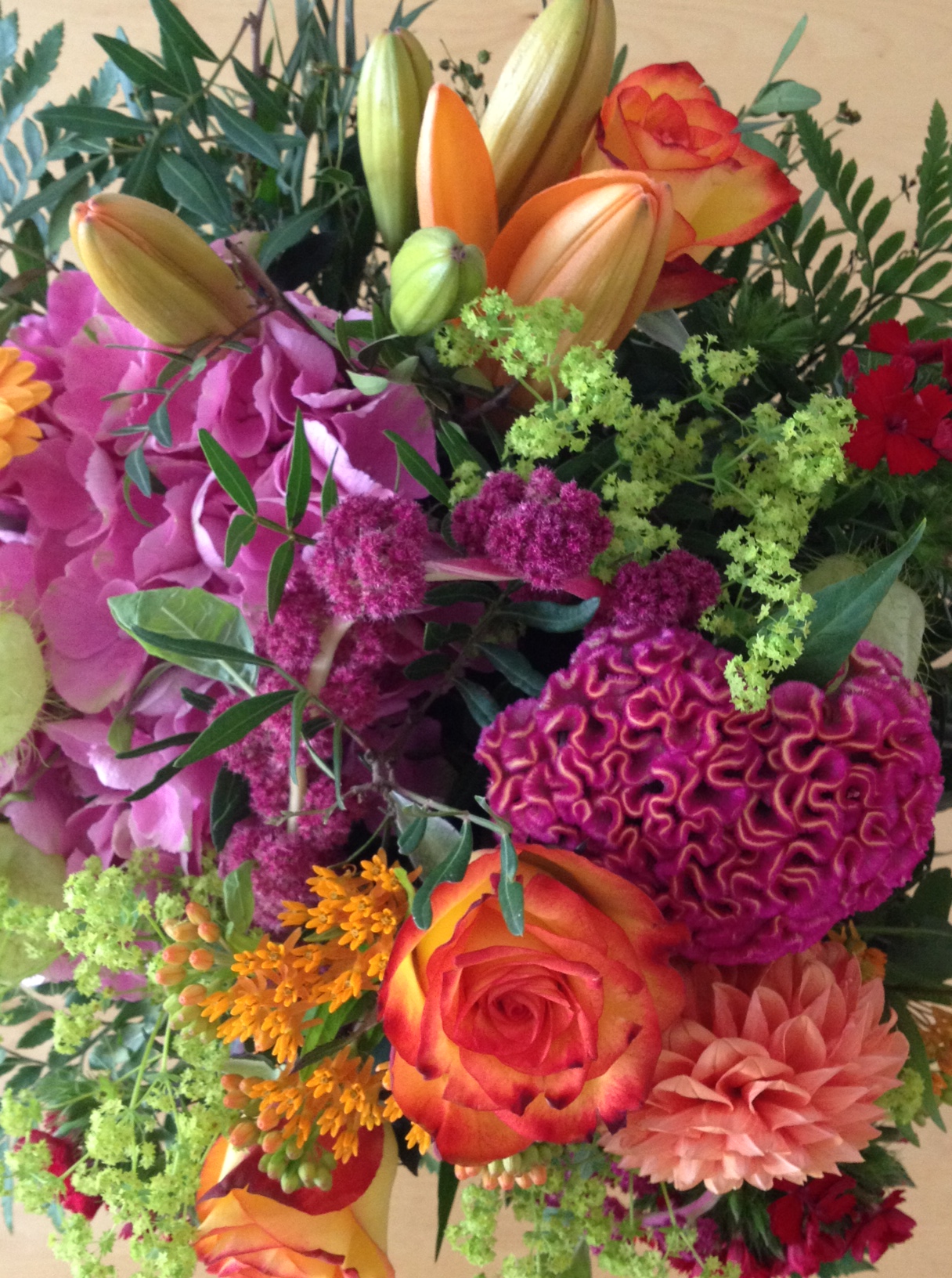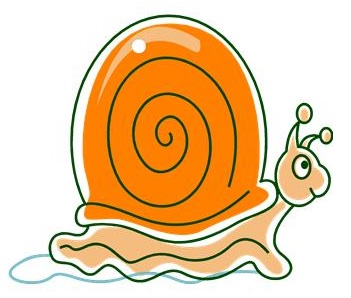See on Scoop.it – Mindful Leadership & Intercultural Communication
Major intercultural communications global conference: will you be there? Looking forward to meeting you in person! Jenny
See on dl.dropboxusercontent.com
Coach | Trainer | Speaker | Consultant
See on Scoop.it – Mindful Leadership & Intercultural Communication
Major intercultural communications global conference: will you be there? Looking forward to meeting you in person! Jenny
See on dl.dropboxusercontent.com
“The primary act of mindful leadership (…) is to open – to fully appreciate our circumstances before we seek to influence or act upon them. When we are willing to open to our world before we act, we not only learn what we need to know, but equally important, we express a vital, innate intelligence that is sharp, flexible and unassuming. At such moments, we view our workplace without any lenses, undistracted by our priorities, our preferences, our vision of the future. Instead we grasp directly the full measure of our present circumstances, recognizing opportunities, appreciating other’s views, acknowledging difficulties (…).”
Michael Carroll in: “The Mindful Leader”, 2007, page 23-24.

This week was a week full of action and of change for me; I had the opportunity to live up to what I have been writing about during the last year here on my blog.
Mindfulness and emotional intelligence really empowers I have to say. Where I normally would have been dragged to the ground, like in a vortex, I emerged even stronger as before. Of course there were emotions and feelings as well as lots of thoughts. But the beauty was that I was able to let go, to breath with them and recognize them for what they were: just emotions or thoughts, passing by and then evaporating.
We all have to deal with strong emotions (negative and positive) from time to time. And we all know that we cannot put feelings aside or try to block them. They will surface again, in moments we don’t expect them to, even stronger than before. Hence, accepting what is going on, putting a label to thoughts and emotions, allows us to ‘file’ them, let them go and carry on.
Thank you Gabi, Jacqui, Miriam, Jitendra and Viorela for having brought out even more passion, empathy and emotional intelligence from inside of me. Thank you also for having been yourselves! My thoughts are with you, mindfully.
Jenny

 The other day I was searching for a bed time story and just randomly picked a book. The story was entitled something along the lines of ‘Invitation for coffee and cake by the racing snails’. It was about a normal little snail which one day was invited for coffee by the racing snails; the only problem was that the ordinary snail was very slow and enjoyed doing everything slowly. The meeting point with the faster snails on the other hand was far away. Nevertheless, our little snail decided to accept the invitation and to ‘hit the road’ directly in order to arrive on time two days later.
The other day I was searching for a bed time story and just randomly picked a book. The story was entitled something along the lines of ‘Invitation for coffee and cake by the racing snails’. It was about a normal little snail which one day was invited for coffee by the racing snails; the only problem was that the ordinary snail was very slow and enjoyed doing everything slowly. The meeting point with the faster snails on the other hand was far away. Nevertheless, our little snail decided to accept the invitation and to ‘hit the road’ directly in order to arrive on time two days later.
On its way it passed through a field of fresh salad and found that it had never seen such great salad in its life. It hence stopped to eat. Then it was tired and found a perfect place to sleep and so on. At first it thought: “oh no, I am going to be late” but then it simply decided to enjoy the present moment and everything it saw along the way.
In the end it arrived (obviously) too late where it was supposed to be and all the other snails were long gone already. The cake was eaten and the coffee can empty. A little bug walking by wondered why the snail was looking so happy and content although there was nobody left at the party and thus questioned it. The snail simply responded that it did not matter as now it would have all the time it needed to enjoy the journey back and do everything slowly as it was used to.
I must say that I found this story excellent as it is a wonderful metaphor illustrating how much nicer it can be to walk mindfully through your life, enjoying every single moment of it and living here and now, instead of running without noticing what surrounds you, as small as it might be! We should enjoy our journey through life and stop striving for something far away in the future. We have the opportunity to be happy and fulfilled here and now and it is up to us to decide to live our lives that way.
What about you? Are you living the present moment or just passing through your own life?
Have an excellent Sunday!
Jenny
Many of you will already have experienced this at some times in their lives: you are not really motivated to go to work or open your laptop. You feel not energized at all, everything seems to be taking longer than before. Whatever it is you are doing is demanding you so much less than you are capable of that you actually feel completely bored and useless. Sounds familiar? Well, let me tell you that persistent boredom is also a form of stress which – as all forms of stress over longer periods of time – can make you sick in various ways.
Not being challenged enough is one extreme of the so-called “Yerkes-Dodson Curve” which looks like a reversed U.
As we also know all too well, life nowadays is asking many of us a lot in terms of data overflow, multitasking, more and more global organizations, hence increased workload at demanding times, etc. When dealing with these sort of challenges but still being capable of handling everything, we move up the curve towards the peak. Pressure increases but so does our ability to cope with it in an effective manner.
Nevertheless, beyond a certain point, if the pressure continues to rise our performance will start to decrease. We feel less able to cope with the multitude of tasks we are to perform, details are lost in a sheer flood of information, we feel overwhelmed and unorganized. Our motivation drops and eventually, when this goes on for too long, we become sick. Obesity, burnout, depression, chronic pain, fatigue, cancer, heart disease are just a few key words to stress what an important impact stress can have on our wellbeing and our lives as a whole. Your body simply cannot cope with the permanent activation of the sympathetic nervous system… stress becomes distress.
At the peak however, when finding the right balance between personal resources and challenge, we excel. In this state you are creative and efficient and you feel very good about yourself. Usually this state is called ‘flow’.
You might be asking yourselves now: is there a way to prevent tripping over to the other side of the U? Well, yes there is! You have to find a “relaxation response”[1], that means a “(…)physical state of deep rest that counteracts the harmful effects of (your body’s) fight-or-flight response”. If you are able to do this, you might even discover a state of much higher performance than you ever would have imagined.
Mindfulness training, as a way of being present right here and now with your own thoughts, feelings and physical sensations, will certainly enable you to deal better with wherever you are on the Yerkes-Dodson Curve.
Don’t hesitate to contact me should you want to learn more about how mindfulness could help you! Jenny
Further reading:
[1] Chaskalson, page 63.
 Last week I discovered that my blogger friend Ute nominated me for the Versatile Blogger Award. Ute and I have a lot in common, not only the European School that we attended as kids in different parts of Europe and her blog, expatsincebirth is truly excellent. Being nominated by such a person is an honor for me. Thank you Ute! J
Last week I discovered that my blogger friend Ute nominated me for the Versatile Blogger Award. Ute and I have a lot in common, not only the European School that we attended as kids in different parts of Europe and her blog, expatsincebirth is truly excellent. Being nominated by such a person is an honor for me. Thank you Ute! J
And here are the rules for the Versatile Blogger Award:
Please find herewith my nominees, who are all worth checking out!
And here the seven things about me:
Thanks again and have a great evening, morning, day, Jenny

Beautiful poem describing my mindfulness retreat in silence today; Found here:
I go among trees and sit still.
All my stirring becomes quiet
Around me like circles on water.
My tasks lie in their places
Where I left them, asleep like cattle…
Then what I am afraid of comes.
I live for a while in its sight.
What I fear in it leaves it,
And the fear of it leaves me.
It sings, and I hear its song.
By Wendell Berry from Sabbaths, 1987, North Point Press
A very good and comprehensive article on Emotional Intelligence (EI). Thank you Louise!
 While reading this article on how difficult it is to say: “I am sorry” in different cultures, it struck me that things which appear to be so simple on the surface can have a tremendous impact. This it not only true when speaking about image, communication/negotiation style and branding of organizations; it is also crucial when it comes down to the level of personal relationships (at work and in private). Whenever people from different cultures communicate, they have to be mindful about how and if certain emotions are transmitted.
While reading this article on how difficult it is to say: “I am sorry” in different cultures, it struck me that things which appear to be so simple on the surface can have a tremendous impact. This it not only true when speaking about image, communication/negotiation style and branding of organizations; it is also crucial when it comes down to the level of personal relationships (at work and in private). Whenever people from different cultures communicate, they have to be mindful about how and if certain emotions are transmitted.
In that sense it is already helpful to look inside yourself and your cultural background/worldviews to see how you are actually apologizing. Is it something that comes quite naturally to you? Do you use words or rather gestures? Or don’t you say anything at all? It already makes a major difference if you are a woman or a man but adding the cultural lens to the problem, doesn’t make things easier.
Next time you meet with your team or speak to friends from different nationalities and cultural backgrounds, please be mindful about how easy/not that easy it is for them to acknowledge mistakes and say “I am sorry”. It can have a huge impact on the quality of the relationship and what it is build of: mutual trust!
Interesting posts on the subject:
 This week I am very much looking forward to a one-day mindfulness retreat next Saturday. One day without speaking, just with myself, letting go and being. Those of you who know me personally might think: ‘how is she going to do that, one day without speaking’ 😉 Actually it is not the first time I will be doing it and every experience has been very enjoyable so far. It really is a moment for yourself, for refilling your batteries and emerging with more power, clearer ideas and very much centered. One day is not much, but given my busy life, the best I can do from time to time.
This week I am very much looking forward to a one-day mindfulness retreat next Saturday. One day without speaking, just with myself, letting go and being. Those of you who know me personally might think: ‘how is she going to do that, one day without speaking’ 😉 Actually it is not the first time I will be doing it and every experience has been very enjoyable so far. It really is a moment for yourself, for refilling your batteries and emerging with more power, clearer ideas and very much centered. One day is not much, but given my busy life, the best I can do from time to time.
You don’t need to go anywhere though to find your inner peace, there are many ways in which you can practice informally, doing whatever you are doing during the day. Here’s how:
These tips are just a couple of hints regarding what you could do during the day; be creative, set your alarm clock to a certain time every day and when it rings, stop everything you are doing and remain mindful for just a couple of minutes. Be fully with whatever you are doing and try not to multitask… with practice, it will become easier and you won’t need an alarm to remind you to be mindful at least once a day.
Here’s wishing you an excellent week!
Jenny